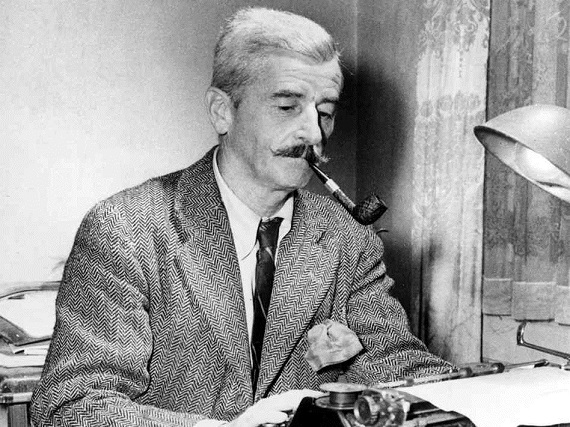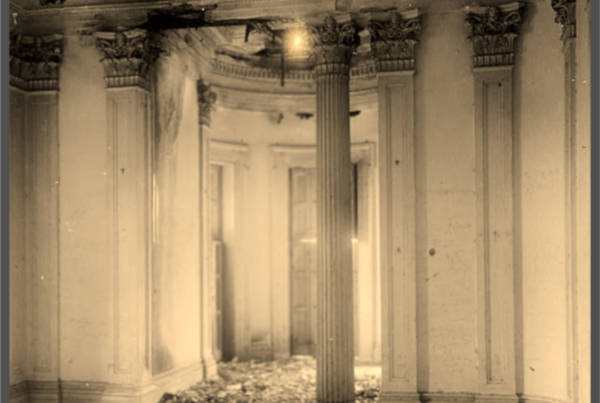Perceptive and insightful people have known through the centuries that William Shakespeare could not possibly have written the plays and sonnets that had been attributed to him, beginning with certain suspicious posthumous folios. That uneducated hayseed from the North Country about whom very little is known! And, for Heaven’s sake, an actor to boot! Impossible! There must be a mystery somewhere. What are called Shakespeare’s works obviously must have been written by someone of higher station and greater known talent.
All perceptive and insightful people now, of course, understand that the real author of what are called Shakespeare’s works was the brilliant Earl of Oxford.
More lately, perceptive and insightful minds have applied themselves to the puzzle of one of the 20th century’s greatest writers, alleged to be the small-town ne’er-do-well William Faulkner. It is obvious to the wise that the known individual William Faulkner could not have been the source of the numerous masterpieces attributed to his pen (or rather, typewriter). Faulkner attended college for less than a year and flunked English literature. He never held a steady job for any period of time and was known around town as “Count No-‘Count.” The man was drunk most of the time.
William Faulkner was notoriously averse to discussing the works of literature attributed to him. Sometimes, when he did discuss them, in answering students’ questions, for instance, he mixed up some of the characters and incidents in “his” books and stories. He avoided interviews, sometimes to the point of violence, and at Manhattan publisher’s events was surly and unapproachable. Sometimes when he was forced to read from his works, he acted as if he had never heard the words before.
Obviously, the man had something to hide and suffered from great tension—tension such as would be required to keep up a long-running game of false-pretences. Who did write those 20th century masterpieces? Perceptive and insightful students have fixed on the likelihood of Faulkner’s fellow Oxford resident Phil Stone. Phil Stone was a graduate of Harvard, one of the few in that area. He had a large library which we know Faulkner hung around often. Obviously Stone was the only person around who could have written those masterpieces.
Other evidence corroborates Stone as the real author. The earliest versions of “Faulkner’s works” are typescripts, with occasional scribbled notations and interpolations in Faulkner’s hand—notations which could have been dictated to him by Stone. During screen-writing stints in Hollywood Faulkner was known to disappear suddenly and without explanation from time to time. It seems likely that when the mail from Oxford was too slow in bringing Stone’s compositions, he had to go back to the source in person.
Stone, unlike most other Faulkner acquaintances, was extremely reticent about their relationship. Why the brilliant Oxford lawyer chose to hide behind a local nobody is unknown. Probably he knew that in backward Mississippi, his literary genius would have harmed his professional career and his perhaps contemplated political ambitions. By the subterfuge he avoided the opprobrium heaped on the hapless Faulkner by their neighbours.







